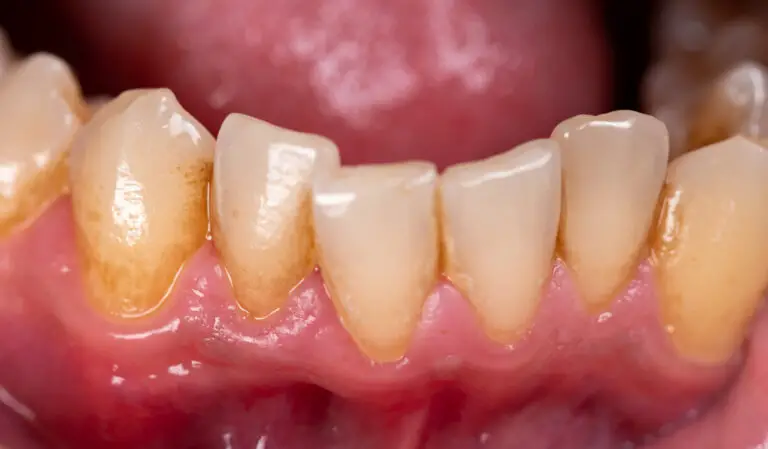Chewing gum has become an exceedingly common habit for many people all over the world. The rhythmic act of mastication without ingesting food provides oral stimulation and stress relief for chewers. But most conventional chewing gum contains synthetic ingredients like plastic polymers and artificial sweeteners that may be best avoided for health reasons. The good news is that nature provides a wide variety of healthy, natural alternatives to satisfy the human urge to chew without reaching for a pack of gum. This in-depth article will explore various plant-based foods, seeds, dried fruits, barks, and chewing sticks that can serve as wholesome substitutions for commercial gum.
Why People Chew Gum
Before examining healthy alternatives, it is helpful to understand the primary reasons that chewing gum is so popular globally:
Pleasure and Stress Relief
For many, chewing gum is an enjoyable activity and effective way to relieve stress. The repetitive motion of chewing produces a calming, zen-like state for some. This subconscious habit can become a self-soothing behavior over time.
Oral Fixation
Chewing gum satisfies an oral fixation and keeps the mouth busy. For those attempting to quit smoking or reduce snacking, gum helps distract the urge to put food in the mouth.
Halitosis Prevention
Chewing gum increases saliva production which helps temporality neutralize bad breath. The mint flavors can mask odors as well. This makes gum a quick fix for bad breath, especially when brushing is not possible.
Oral Health
Some studies have shown that chewing sugar-free gum increases saliva flow which can reduce bacteria and acidity in the mouth. This may support oral health between meals, although evidence is mixed.
Alertness
Chewing gum may help increase focus, alertness and even memory consolidation through increased blood flow and delivery of oxygen, glucose and other nutrients to the brain.
Weight Management
Chewing gum may help prevent mindless snacking by keeping the jaw busy. It provides oral satisfaction without calories making it a popular dieting aid for some.
Smoking Cessation
For those quitting smoking, nicotine gum can help prevent withdrawal symptoms and cigarette cravings by delivering nicotine without smoke inhalation.
While conventional gum effectively serves these purposes, there are healthier and more natural alternatives to choose from.
Drawbacks of Conventional Chewing Gum

Although chewing gum is enjoyable and useful for many people, there are some potential downsides to consider as well:
- Dental Health – Long term gum chewing can lead to increased tooth decay and erosion from plaque acids, especially after meals. Sticky gum can also pull out fillings and cause cracked teeth over time. And some sugar-free gums still contain acids that erode enamel.
- Digestive Upset – Chewing gum can lead to swallowing excess air which can cause bloating. The sorbitol often used as a sweetener in gum can have a laxative effect in large amounts.
- Jaw Problems – Excessive gum chewing can contribute to temporomandibular joint (TMJ) pain and other jaw issues from overuse of the chewing muscles.
- Addictive – The habit-forming nature of chewing gum can be hard to break for heavy users. Withdrawal symptoms like anxiety may occur when attempting to quit.
- Synthetic Ingredients – Conventional gums contain artificial sweeteners, colors, plastics, and preservatives that may cause negative health effects with frequent exposure.
For those looking to avoid these issues, the following natural alternatives can provide similar chewing satisfaction without the drawbacks of conventional gum.
Healthy Alternatives to Chewing Gum
1. Seeds and Nuts
Crunchy seeds and nuts can provide lasting chew satisfaction while delivering nutrition. They create jaw resistance and require extensive mastication to extract their full flavor. Some of the best options include:
- Sunflower Seeds – The firm shell encasing the tender seed makes sunflower seeds ideal for chewing. They provide vitamin E, manganese, magnesium, tryptophan, selenium, and B vitamins. Just watch portion sizes as the calories add up fast.
- Pumpkin Seeds – Pepitas have a smooth, tender texture, unlike sunflower shells. They contain zinc, magnesium, plant-based omega-3s and tryptophan.
- Almonds – Loaded with vitamin E, magnesium, antioxidants, protein and healthy fats, almonds have a satisfying crunch. Choose natural ones with the peel still on for some extra chew time.
- Pistachios – Getting through the hard outer shell of pistachios takes effort and prolongs the chewing experience. They also deliver protein, fiber and beneficial antioxidants.
- Walnuts – The wrinkled surface and delicate crunch of walnuts makes them perfect for extended chewing sessions. They provide inflammation-fighting omega-3 ALA and magnesium.
- Chia Seeds – When soaked in liquid, chia forms a gel coating and tapioca-like texture. It can be infused with flavors and chewed for a long duration.
- Flaxseeds – Flax also softens when soaked and forms a gel consistency. It provides anti-inflammatory omega-3s and fiber.
- Sesame Seeds – Crunchy and nutty flavored, sesame seeds promote dental health. Their small size requires extensive chewing to break them down fully.
- Pecans – With a buttery flavor and crisp texture, pecans work well for chewing while providing zinc, magnesium and polyphenols.
2. Dried Fruit
Dehydrated fruits like dates, figs, apricots, pineapple, cranberries, apples and raisins maintain a nice leathery, chewy texture. Look for unsweetened varieties to avoid excess sugars.
3. Chewy Granola Bars
Search for soft granola bars made primarily from rolled oats, nuts, seeds, dried fruit, and natural sweeteners like brown rice syrup or honey. The dense texture makes them very chewable. Brands like Larabar, RX Bar, and Purely Elizabeth are good options.
4. Tough Vegetables
Several raw veggies maintain a nice firmness that prolongs chewing duration. Good choices include:
- Carrots – Harder carrot varieties especially provide crunchy fiber.
- Celery sticks – Stringy celery fibers make it incredibly chewy.
- Broccoli florets – The dense stalks require effort to breakdown.
- Cauliflower – Crunchy raw cauliflower satisfies chewing urges.
- Bell Peppers – Especially the core and seeds which are extra tough.
- Ginger root – Fibrous and spicy fresh ginger is perfect to gnaw on.
- Jicama – This juicy tuber has a crunchy flesh that promotes chewing.
5. Natural Chewing Gum

There are some healthier gum options made without synthetic plastics or artificial sweeteners. Ingredients usually include chicle, a natural tree resin, along with fruit extracts and essential oils for flavor. Brands like Simply Gum, Neuro, and Chicza provide more natural alternatives.
6. Chewing Sticks
Chewing sticks are twigs and roots used traditionally by cultures around the world to clean teeth while freshening breath. Popular options are neem, licorice, orange wood, and miswak sticks. They provide texture, absorb odors, and promote gum health when chewed daily.
7. Beef Jerky
Low-sugar beef jerky has a nice chewy texture that takes effort to break down. Look for quality brands that use grass-fed beef and minimal ingredients. Turkey jerky can provide a leaner alternative.
8. Licorice Root
The fibrous dried root of the licorice plant works well for chewing and has a natural breath-freshening effect. Just avoid black licorice candy which contains added sugar.
9. Fennel and Anise Seeds
Fennel seeds have a crisp texture and sweet flavor perfect for chewing. Anise seeds provide a similar licorice-like taste. Both aid digestion and freshen breath.
10. Gummy Candy
There are some natural gummy candies made with real fruit juice and vegetable glycerin instead of gelatin or corn syrup. Brands like SmartSweets and Surf Sweets offer chewy gummy options in fruit flavors without synthetic ingredients. But they can still stick to teeth.
11. Gelatin Gummies
Unflavored, nutrient-dense gelatin gummies provide collagen protein and can be safely chewed since they dissolve easily. Beef or marine collagen supplements often come in chewable gelatin gummy formats. But gelatin is made from animal bones so it is not vegetarian.
12. Mastic Gum
Mastic is an resinous sap harvested from the Pistacia lentiscus tree native to the Mediterranean. The brittle, crystalized sap is chewed raw to help clean teeth and freshen breath. It has antimicrobial properties to combat germs in the mouth.
13. Falim & Moga Chewing Gum
These traditional Korean gums are 100% natural tree sap with no flavorings. They clean teeth and promote saliva better than gum with synthetic ingredients. Although not as flavored as commercial gums, these provide healthy chewing satisfaction.
14. Xylitol Gum
Some gum companies like Simply Gum make xylitol-sweetened options. Xylitol is a natural sugar alcohol derived from birch trees. It inhibits cavity-causing bacteria and increases saliva which can benefit dental health. But xylitol is still processed and too much can cause digestive issues.
Benefits of Natural Chewing Alternatives

Switching from conventional chewing gum to more natural options provides a range of health advantages:
- Nutrition – Seeds, nuts and dried fruits contribute valuable protein, healthy fats, vitamins, minerals and antioxidants when chewed in moderation.
- No Artificial Ingredients – Avoid synthetic plastics, colors, sweeteners and preservatives found in commercial gum that may harm health over time.
- Dental Health – Hard shells like sunflower seeds can scrape away plaque. Some options also increase saliva to balance mouth bacteria.
- Natural Breath Freshening – Chewing sticks, licorice root, fennel seeds, and parsley naturally absorb odors and freshen breath.
- Satisfaction – The unique textures of seeds, vegetables, and dried fruits can fulfill chewing urges while supporting oral health. Variety prevents boredom.
- Mindfulness – Consciously savoring natural flavors and the chewing experience combats mindless eating and stress.
- Oral Fixation Aid – Healthier alternatives can provide a distraction from urges to smoke or snack excessively between meals.
- Jaw Strength – Chewing plant fibers requires effort from jaw muscles leading to a stronger bite and facial structure.
- Detoxification – Some alternatives like licorice root and neem sticks pull toxins from the mouth and body when chewed over time.
Tips for Chewing Without Gum
Here are some helpful tips for making the transition from conventional gum to natural chewing alternatives:
- Carry small containers of sunflower seeds, nuts, dried fruit, or dried vegetables in your purse, bag, car or desk drawer to have ready access.
- Prepare crunchy raw vegetables like carrots and celery sticks in advance so they are easy to grab on-the-go.
- Try new options regularly to discover flavors and textures you enjoy most for chewing.
- Slow down while chewing to fully extract flavors and nutrition. Make it a mindful experience.
- Drink water frequently while chewing to help cleanse the palate.
- Limit chewing sessions to 10-15 minutes to avoid jaw strain or dental issues.
- Consume seeds, nuts, and dried fruit in limited portions to prevent excess calories.
- Look for organic and non-GMO chewing options when possible.
- Carefully read ingredients to avoid dried fruits with added sugars.
- Consider replacing gum with a natural chewy snack during the adjustment period.
- Avoid chewing on only one side by switching sides periodically.
Potential Concerns

While natural chewing alternatives offer many benefits, here are some potential concerns to keep in mind:
- People with temporomandibular joint dysfunction (TMJ) should be cautious with extended chewing sessions to avoid exacerbating jaw issues.
- Those with digestive problems may experience distress from high-fiber options. Look for peeled, soaked or cooked alternatives.
- Check for nut allergies when consuming tree nuts. Seeds tend to be less allergenic.
- Dried fruit has concentrated sugars and calories so portions should be monitored.
- Sticky dried fruit and candies can adhere to dental work or pull out loose fillings.
- Hard seeds and vegetables could potentially crack weak teeth. But they are unlikely to damage strong healthy teeth.
Overall, moderate consumption of whole food chewing alternatives appears safe for most people and provides substantial health advantages over conventional gum. Those with specific medical conditions should consult their dentist or doctor with any concerns.
Frequently Asked Questions
Are seeds and nuts bad for teeth since they are hard and crunchy?
Seeds and nuts pose little risk to dental health when eaten properly. Their hard shells help scrub away plaque similar to tooth brushing. The key is not cracking them with teeth. Use molars to grind them and be sure to drink water to wash away particles. Avoid sticky candies that adhere to teeth.
What is the healthiest alternative for chewing gum?
There is no single best option since variety is key. For a balanced approach, consume a mix of seeds, nuts, dried fruits, natural chewing gum, vegetables, and gelatin gummies. Rotate options to get different nutrients and prevent boredom.
How can chewing gum alternatives help you lose weight?
They provide oral satisfaction which prevents mindless snacking between meals. Seeds and nuts especially take effort to chew extracting flavor and promoting satiety with less calories than chips or cookies.
Can chewing alternatives really help quit smoking?
Yes, options like sunflower seeds, carrots, and natural gum provide an oral fixation distraction and sensory satisfaction similar to smoking. This makes them promising aids for managing cigarette cravings and nicotine withdrawal.
What is the best natural gum for bad breath?
Chewing sticks made from neem, orange wood, licorice root and miswak are traditionally used worldwide to freshen breath. Fennel, anise, cinnamon, and mastic tree sap also help neutralize odors in the mouth naturally.
Conclusion
For those looking to avoid the drawbacks of conventional chewing gum, nature provides a diverse array of healthier alternatives. Seeds, nuts, vegetables, dried fruits and chewing sticks can satisfy the human urge to chew while delivering nutrition and freshening breath. They help prevent mindless snacking and smoking, strengthen jaw muscles, and support dental health. With so many natural options to pick from, everyone can find a favorite gum alternative to promote wellbeing with minimal effort. Small simple swaps reap big rewards by removing this unhealthful habit from daily oral routines.






